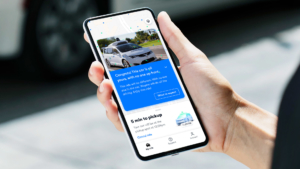A few things come to mind when you think of Dallas, Texas. There’s the iconic 80s TV show—who can forget J.R. Ewing? There are also notable sports teams the Dallas Cowboys and the Mavericks. Dallas County is also home to some great historic sites like Pioneer Plaza and Old City Park.
What you probably aren’t thinking about are accidents involving commercial vehicles. However, there were 4,127 commercial motor vehicle crashes in Dallas County in 2021.
While this doesn’t mean you’re destined to get into a wreck with a commercial vehicle, it does indicate there’s a chance of being involved in an accident. So, how can you stay safe driving in Dallas County? Keep reading on to learn more.
Staying Safe on Dallas County Roads
Okay, so you can’t avoid every type of accident involving a commercial vehicle. Sometimes, another driver starts a chain reaction and you’re caught in the middle. However, you can take some steps to stay a little safer and hopefully avoid getting into a wreck.
Don’t Speed
When you hit the highways in Dallas County, the posted speed limit is generally 75 mph. On city streets, the speed limit is usually 30 mph, but this can change depending on the area. The speed limit is lower in school zones, and in some neighborhoods, so you need to pay attention to all posted signs.
Speeding can not only result in a traffic citation, but it can also be a contributing factor to vehicle accidents. When you’re vehicle is traveling at a high rate of speed, it’s more difficult to control. Another issue is being able to respond in time if someone brakes in front of your vehicle. You may not be able to stop in time, rear-ending a commercial vehicle.
Something to consider is speeding doesn’t always mean driving over the posted speed limit. Speeding can also be driving too fast for road conditions. A good way to look at speed limits is to treat it as the fastest rate you’re allowed to go and not the required one. In other words, sometimes it’s best to go below the speed limit.
Not Paying Attention
A lot can happen in the second it takes you to glance down at your cell phone or even over at a passenger in the front seat. Driver inattention is a leading cause of accidents involving commercial vehicles.
Have everything ready before you hit the road. This includes connecting your cell phone to your vehicle’s infotainment system. If you drive an older model vehicle, put your phone away. Set the radio station and program the GPS before pulling out. These simple steps can dramatically decrease your chances of being involved in a car wreck.
Your passengers can also be a distraction, but you don’t have to put a stop to all conversations, just remind your passengers you need to stay focused on the road. This can be especially true when your passengers are small children, so gently try to remind them you can’t focus on their needs while driving.
Sudden Lane Changes
Like most larger cities in Texas, Dallas and the same-named country have multi-lane freeways. One of the lanes is designated for passing slowing-moving vehicles. Chances are, you’ve seen a driver weaving in and out of the lane to get around other vehicles. They seldom use their turn signal, instead they just dart in and out of traffic.
Yes, these drivers may make it safely to their destination. However, they’re also placing themselves and other drivers at risk. The sudden lane changes often force other drivers to slam on the brakes, and this can be an issue for commercial vehicles.
Remember, most commercial vehicles are larger than standard passenger cars and even pickup trucks. They require more time to slow down. Sudden lane changes can result in an accident, often with a commercial truck running into another vehicle.
Failure to Yield
Unless there’s a posted sign, you can legally make a right turnat most intersections even if the traffic light is red. You’re still required to come to a complete stop and check for any incoming traffic.
Since the light is red facing your direction, you have a duty to yield to incoming traffic. This is the traffic with the green light. Rolling through the red light to make a right turn is a traffic violation that can also cause a vehicle accident.
When it comes to yielding at stop signs, the same basic traffic law also applies. The first vehicle to arrive at the stop sign has the right of way, regardless of whether it’s turning or going straight. With this being said, even if you’re the first vehicle at a stop sign, you still want to check for oncoming traffic.
Remember, not every driver is going to yield the right of way. After checking traffic in all directions, proceed through the stop sign. Often, being a little cautious is the best way to avoid a collision.
Tailgating
What is tailgating? Yes, tailgating is a term used to describe parties in parking lots before a sporting event. However, the term has another meaning when referring to driving behaviors.
Tailgating refers to driving too close to a lead vehicle. If you can’t see the lead vehicle’s license plate, you’re following too closely. Most traffic experts recommend leaving about two or three seconds of room between you and the lead vehicle.
Why is tailgating potentially dangerous? If the lead vehicle comes to a sudden stop, you probably aren’t going to be able to brake in time. Rear-ending a commercial vehicle, even at a low rate of speed can still result in a catastrophic accident.
Driving Under the Influence
Dallas is home to several professional sports teams, and this isn’t the only reason to enjoy a few adult beverages. However, getting behind the wheel after drinking is illegal and dangerous. This also applies if you’re taking medication with side effects that can impact your ability to safely operate a motor vehicle.
If you decide to have a good time, make sure you have a safe way home either with a designated driving or a rideshare app.
You Have Rights After Being Involved in an Accident With a Commercial Vehicle
Sometimes, it doesn’t matter how safe a driver you are; accidents with commercial vehicles can still occur due to factors beyond your control.
If you’re involved in an accident, contact an experienced personal injury attorney to learn more about your legal rights and options, ensuring you receive the support and compensation you deserve.




